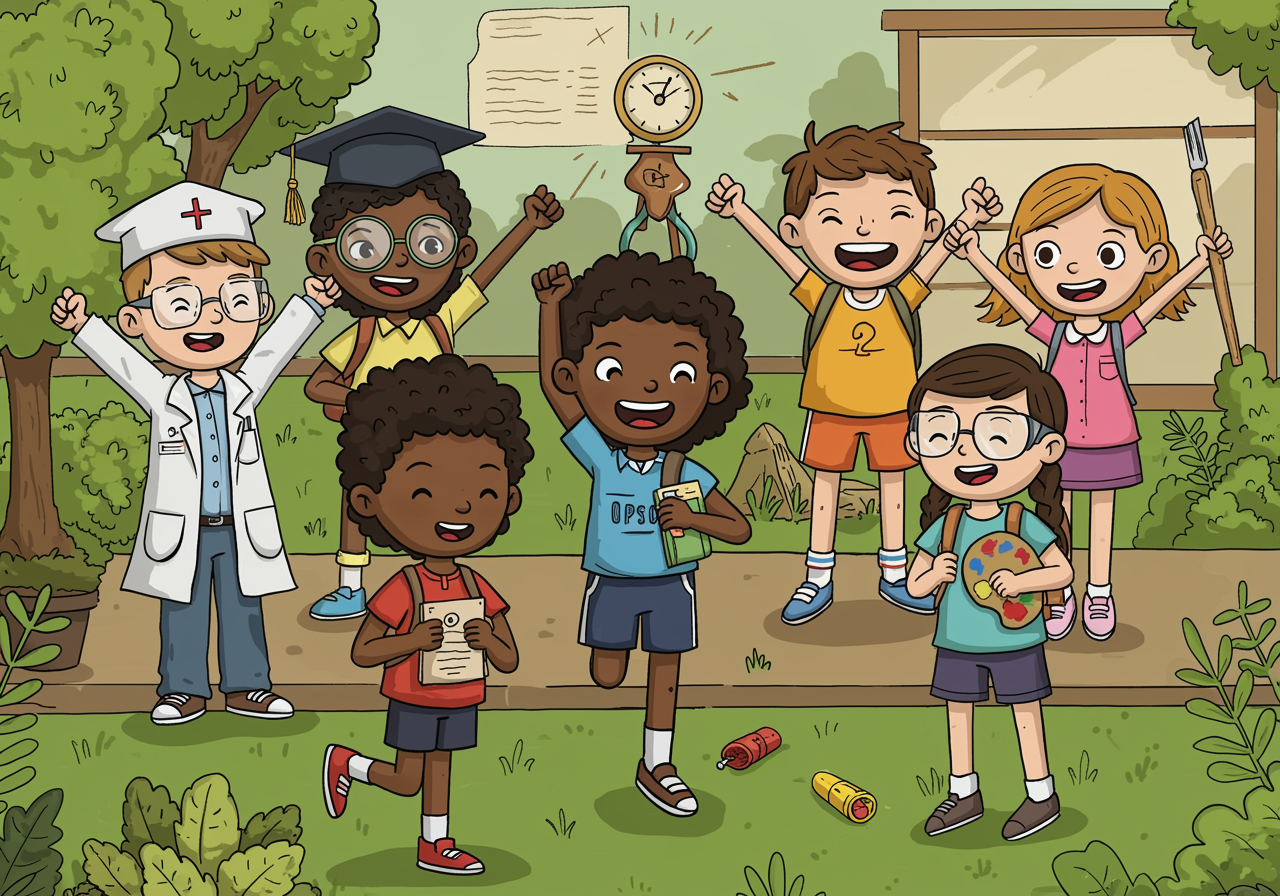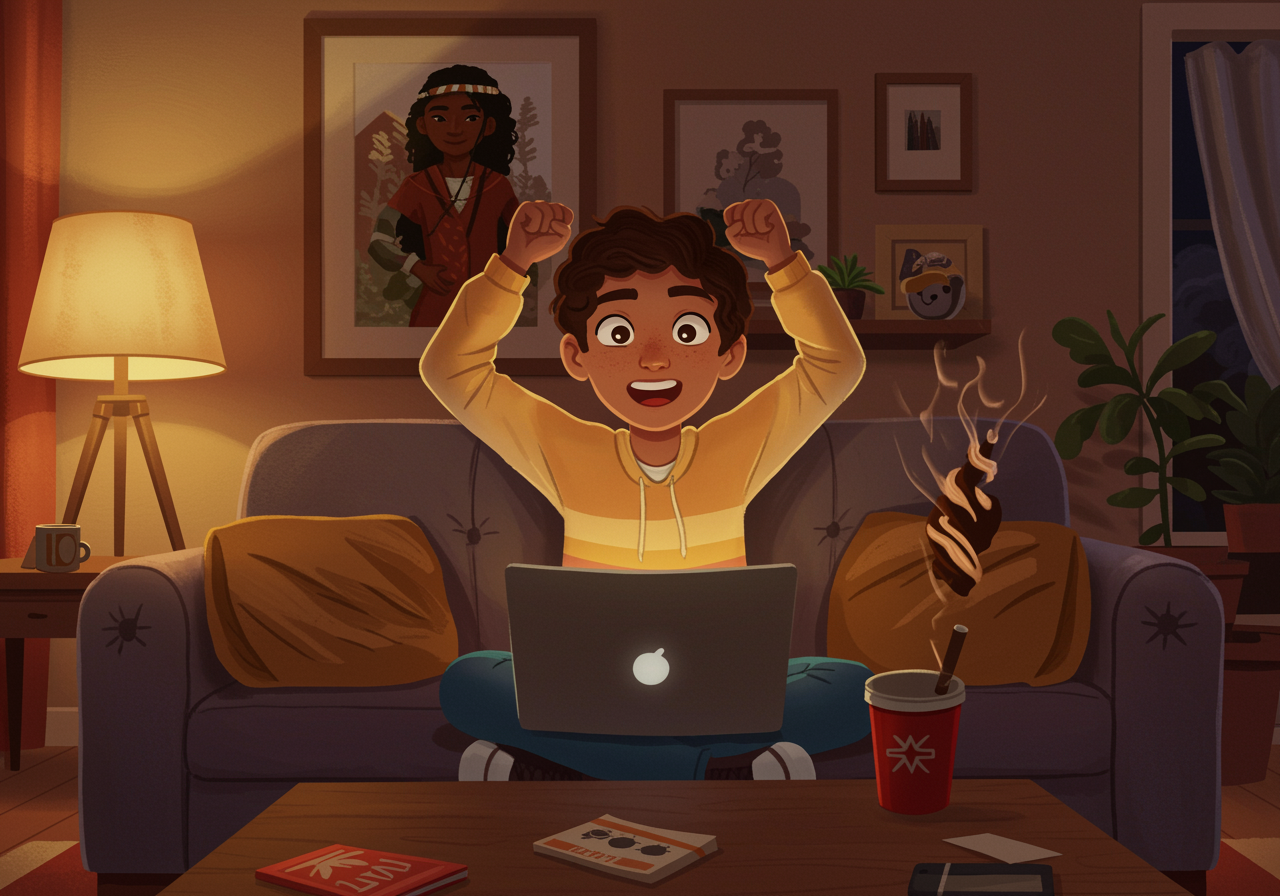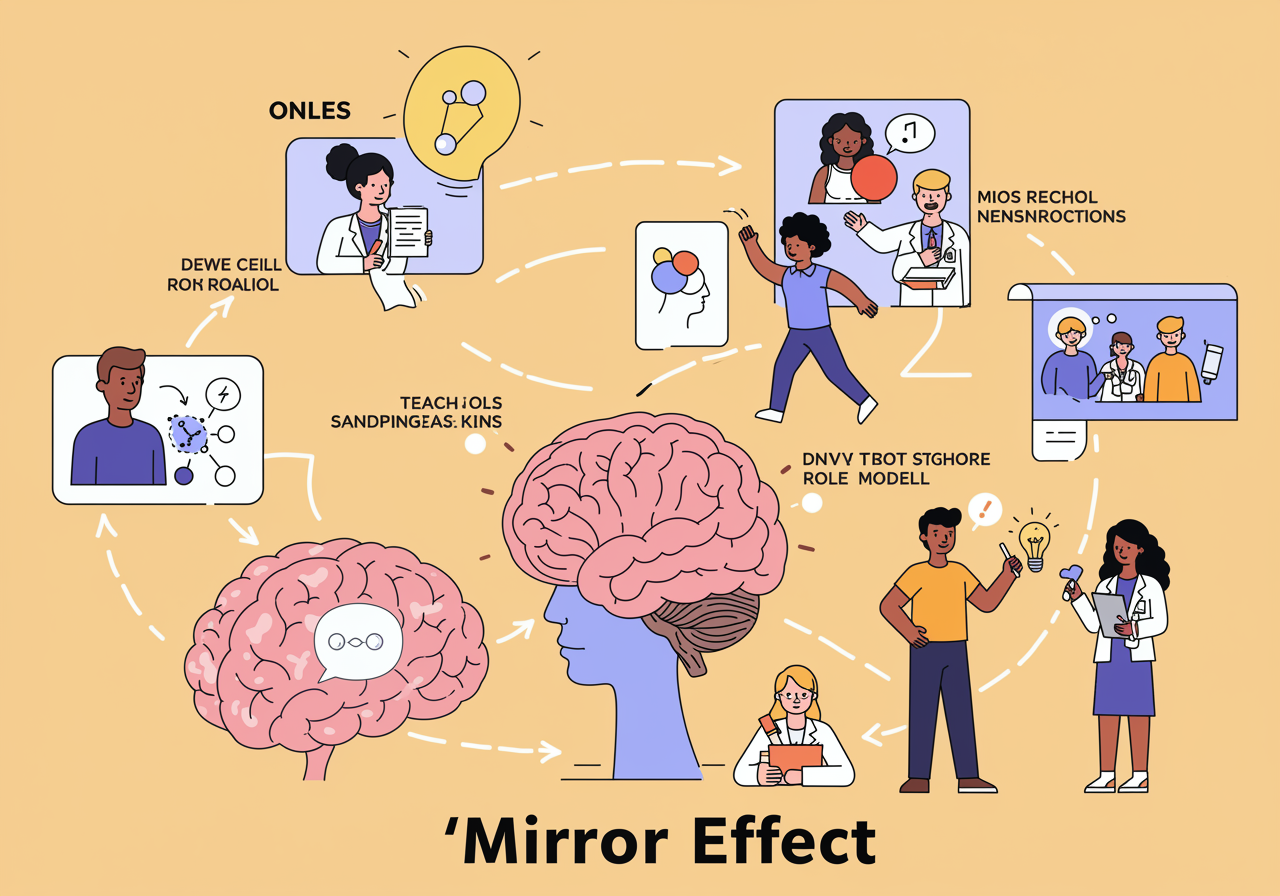The Mirror Effect: Why We Connect with People Like Us
Discover the brain science behind role models and representation
Explore why seeing ourselves reflected in others can spark powerful inspiration and what this means for your teen’s developing identity.
Overview
Have you ever noticed how your teen lights up when they see someone who looks like them succeed in sports, movies, or science? There's actual brain science behind this! Our minds are wired to connect more easily with people who share our experiences, backgrounds, or characteristics. This isn't about being narrow-minded—it's about how our brains naturally build confidence and possibility. Understanding this 'mirror effect' helps explain why representation matters so much and why your teen might gravitate toward certain role models.

Understand in 30 Seconds
Get up to speed quickly
- Your Brain's Built-in Mirror: Special brain cells called mirror neurons fire when we see someone like us succeed, making their achievements feel more possible for us too.
- Shared Stories = Stronger Connection: When someone shares your background or challenges, their journey feels like a roadmap you could actually follow.
- Representation Builds Confidence: Seeing people like you in leadership, media, or your dream career sends the message 'you belong here too.'
- It's Normal, Not Limiting: Being inspired by similar people is natural and healthy—it's one way we learn what's possible while still staying open to diverse role models.
Real Life Scenario
Situations you can relate to
Imagine your teen watches a movie where the main character shares their heritage, hometown, or even their struggle with math. Suddenly, that character's journey feels more real and achievable. It's like having a GPS for life—when someone who started where you are reaches an amazing destination, the path seems clearer. Think about it: if you've never seen someone who looks like you become a scientist, it might never occur to you that science is 'for you.' But when you do see that representation, something clicks. Your brain says, 'Hey, if they can do it, maybe I can too!' This doesn't mean we should only look up to people exactly like us, but it explains why that first spark of 'I could do that' often comes from seeing ourselves reflected in someone else's success.

Role Play
Spark a conversation with “what if” scenarios
What if you had to pick a career but could only choose from jobs held by people who looked nothing like you?
- Role play: Have your teen list their dream jobs, then discuss how seeing diverse people in those roles might affect their confidence and motivation.
What if you were the first person from your background to attend your school?
- Role play: Role-play being a pioneer in a new environment and discuss how having mentors with similar experiences would help.
What if you could design a TV show or movie to inspire kids like you?
- Role play: Brainstorm characters and storylines that would make your teen feel seen and motivated, then discuss why this representation matters.
FAQs
Frequently asked questions people want to know
Isn't it better to be inspired by anyone, regardless of similarity?
Absolutely! The goal is to have diverse role models. But understanding why similar role models feel extra inspiring helps us see why representation matters for building initial confidence.
Does this mean my teen is being close-minded about role models?
Not at all. Being drawn to similar role models is natural brain wiring. The key is helping them appreciate both mirrors of themselves and windows into different experiences.
How can I help my teen find role models if they don't see representation?
Look beyond traditional media—find biographies, documentaries, or local community members. Sometimes the most powerful role models are everyday people doing extraordinary things.
Examples in the Wild
See how this works day to day
- After Kamala Harris became Vice President, applications to political science programs from women of color increased significantly, showing the 'mirror effect' in action. (Higher Education Research Institute)
- Marvel's Black Panther movie led to a 30% increase in STEM interest among Black students, demonstrating how representation in media influences career aspirations. (National Science Foundation Education Studies)
- Research shows that having a teacher of the same race increases student test scores and graduation rates, particularly for students of color. (American Economic Review Education Research)
- Studies of Fortune 500 companies show that diverse leadership teams perform better financially, proving that representation benefits everyone. (Harvard Business Review Diversity Studies)
In Summary
What you should know before you start
- Our brains are naturally wired to connect more easily with people who share our experiences or characteristics
- Seeing representation in role models builds confidence and makes success feel more achievable
- This 'mirror effect' is normal and healthy—it's one way we learn what's possible for ourselves
- The goal isn't to limit role models to similar people, but to understand why diverse representation matters for everyone
Pro-tip for Parents
You got this!
If your teen seems drawn only to role models who look like them, don't worry—this is developmentally normal. Instead of pushing them toward different role models, celebrate the ones they connect with while gradually introducing diverse stories. Ask questions like 'What do you admire about them?' and 'Have you seen anyone else with these same qualities?' This helps them identify the specific traits they value, which they can then recognize in people from all backgrounds.

Keep an Eye Out For
Find these examples in everyday life
- Movies, TV shows, or books featuring diverse characters in leading roles—great conversation starters about representation
- News stories about 'firsts'—first woman CEO, first person from a certain background to achieve something—to discuss why these milestones matter
- Your teen's reaction to seeing diversity (or lack thereof) in their favorite activities, sports teams, or hobby communities
Explore Beyond
Look up these related research topics
- How unconscious bias affects the way we see potential in ourselves and others
- The science of empathy and how it helps us connect across differences
- Why diverse teams and communities perform better than homogeneous ones